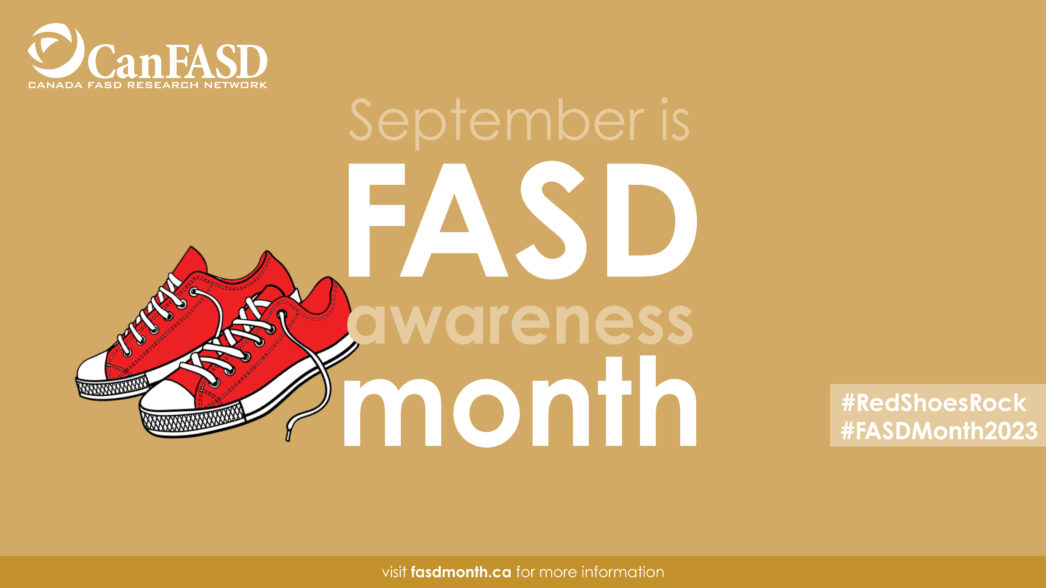FASD Month is underway! Our theme this year is Uniting Our Strengths: Finding Solutions Together. But what does this mean in practice?
At CanFASD, we strive to create evidence-based solutions. Our research team gathers data and evidence to better understand a problem, leverage resources and strengths, and use this research to create and test solutions. We can’t do it alone. Our organization works with people across the country, from many different backgrounds, to generate research and find ways to apply it. Some of the best projects incorporate the most voices.
In honour of FASD Month, we want to share some of the projects that are uniting strengths to come up with unique solutions. Today, we are proud to feature our C.A.R.E Caregiver Approaches, Resiliencies, and Experiences Research project.
Caregivers of Individuals with FASD
Caring for someone with FASD comes with unique successes and challenges. Caregivers of children with FASD have been shown to experience significant needs and concerns, and higher levels of stress than other carers. Barriers such as a lack of understanding of FASD among service providers and others, obtaining an FASD diagnosis, stigma and blame, and limited support can impact caregiving experiences. However, not a lot of research has been done to understand the full experience of caring for someone with FASD across the lifespan.
Importantly, caregivers of individuals with FASD also have unique strengths and experience successes in the ways they connect with their children, families, and communities. In the words of a member of our Family Advisory Committee, “There are so many negatives when it comes to FASD as what most see in behaviour. My children that have a diagnosis of FASD have many strengths and like anyone else, they need to be supported and celebrated.”
What is the C.A.R.E Research Project?
CanFASD researchers in conjunction with the Family Advisory Committee are conducting a study to collect information from caregivers of individuals with FASD to help us better understand their unique perspectives and experiences, and to capture their wisdom about supporting individuals with FASD.
Using an online survey, the specific goals of this research project are to:
- Learn about the unique experiences, concerns, strengths, and successes of someone who takes care of a person with FASD
- Understand more about individuals with FASD through the eyes of their caregivers
What do researchers hope to achieve with this project?
This is an ongoing research study. The information gained and shared through this project will help to amplify the voices of caregivers, provide researchers with a thorough understanding of caregiver’s experiences, and help inform the development of policy and support services.
All caregivers who complete the survey will be offered a “Words of Wisdom” resource, which is a compilation of advice related to raising individuals with FASD provided by caregivers who participate in the study.
On an individual level, the researchers hope that completing the study will help participants reflect on the challenges and successes they’ve faced during their caregiving experiences, and the lessons they’ve learned along the way. The researchers have published three bi-annual survey updates:
- (Spring 2023) Trends in Alcohol and Substance Use
- (Fall 2022) Project Update: Back to School Edition
- (Spring 2022) Project Update Experiences and Perspectives of Caregivers of Individuals with FASD
How did this project come about?
This research study is a collaborative project including CanFASD researchers and the CanFASD Family Advisory Committee. It was inspired several years ago by conversations within the FASD caregiver community about priority needs and research gaps. The study was developed in full partnership with a group of caregivers of individuals with FASD, and research activities continue to be collaborative, with caregivers engaged in project updates, data analysis/interpretation, and knowledge translation activities.
This research project will help us not only understand the strengths and resiliencies of caregivers of individuals with FASD but also help find solutions to the many complex issues that may arise. Be a part of this research project by completing this survey.
This brings an end to our FASD Month feature research projects. Be sure to check out our other posts see what other collaborative projects are currently ongoing in the field of FASD!

